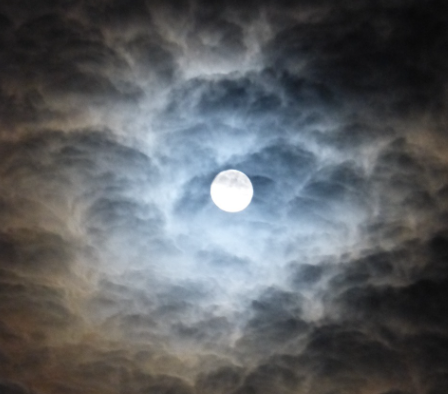An ominous fog set over the sleepy town of Poolesville, Maryland this morning. Is it an ordinary meteorological phenomenon, or a warning from beyond? Some may attribute it to the date: September 13th, 2024, or Friday the 13th.
Why do people from all over the world fear Friday the 13th? Most believers of the dreaded date can’t explain why they fear it, so we investigated the notorious calendar date’s history, cultural influence, and enduring effects today.
History and Origins:
With all the mystery centered on this date, one has to ask where it all began. Many look to religion for the answer. Certain speculations draw attention to the number “13” itself. For example, in Professor Charles Panati’s book “Extraordinary Origins of Everyday Things,” he proposes that these superstitions can be traced back to Norse mythology. He points to the tale where Loki, the god of mischief, intruded upon a banquet in Valhalla. This raised the original attendance of 12 gods to 13. Others point to a different malicious dinner guest in Christian tradition. In this story, Judas, the 13th apostle at the Last Supper of the Messiah, Jesus, would go on to betray the prophet after the feast. Ominous Fridays exist in Biblical tradition as well. It is said that on this day of the week, Adam and Eve committed the original sin; their son, Cain, murdered his brother, Abel; and the Great Flood occurred among other unfortunate events.
Despite all these unique incidents, Friday 13th is specifically deemed unlucky for the first time in Thomas W. Lawson’s popular 1907 novel “Friday, the Thirteenth”. His work tells the tale of a stockbroker who used superstitions to crash the stock market purposefully. From this point on, Friday the 13th has cemented itself as the black cat of all the days in the year.
Cultural influences:
In American culture, it is very common to blame problems on Friday the 13th. If something breaks or goes wrong on the 13th, it is an easy outlet for anger. Also, historical events have piled up on Friday the 13th due to confirmation bias of it being unlucky. It is common for people to avoid scheduling big life events like weddings on the day and people even spend less money.
Because of the number 13’s adopted unluckiness, many old office buildings were created to not call the 13th floor the 13th, instead skipping from floor 12 to 14.
The irrational fear of Friday the 13th has been named paraskevidekatriaphobia, and the fear of the number 13 is triskaidekaphobia, although these are mostly self-diagnosed phobias. Friday the 13th is a relatively healthy way for people to deal with the uncertainty of life.
Common Superstitions:
- Black Cats
- In Medieval Europe, people believed that witches took the form of domestic animals, specifically black cats, in order to discreetly carry out dark tasks.
- Breaking a Mirror
- This superstition stems from the belief that mirrors reflect a person’s soul. If you break a mirror, you will have 7 years of bad luck.
- Walking under a ladder
- Walking under an open ladder is thought to break the Christian belief of the Holy Trinity.
- Opening an Umbrella Indoors
- In Ancient Egypt where umbrellas were used to shield the sun, opening an umbrella indoors was considered disrespectful to the sun god, Ra.
Tips to Dodge Bad Luck This Friday the 13th:
- Knock on wood
- Wear your clothes inside out
- Sleep facing south
- Keep your fingers crossed
- Find a four leaf clover
Variations in beliefs:
Although Friday the 13th carries a negative connotation in American culture, the “unlucky” number is seen differently worldwide.
In Italy, for instance, 13 is a lucky number, as local superstition alleges that a group of 13 people can defeat the devil, and it is synonymous with reaching one’s goals. Jesus also had 13 apostles, and the number is linked to the Virgin Mary. In the famously religious Italy, this positive connotation has stuck for centuries. By contrast, in Greece and Spanish-speaking countries, Tuesday the 13th is met with fear. In Italy, Friday the 17th is a day of bad luck.
Turning the Tide:
Despite the date’s notoriety, it’s not too late to turn around its reputation. Singer-songwriter Taylor Swift considers the number 13 lucky.
“I was born on the 13th. I turned 13 on Friday the 13th. My first album went gold in 13 weeks. My first No. 1 song had a 13-second intro,” she told MTV in 2009. “Every time I’ve won an award I’ve been seated in either the 13th seat, the 13th row, the 13th section or row M, which is the 13th letter. Basically, whenever a 13 comes up in my life, it’s a good thing.”
The verdict is still out on whether Friday the 13th is actually unlucky, but promotions surrounding the day may improve its popularity. Krispy Kreme is selling a dozen glazed donuts with any dozen for 13 cents today in celebration of the day and Wendy’s is offering rewards members a free any size fries with any purchase.











